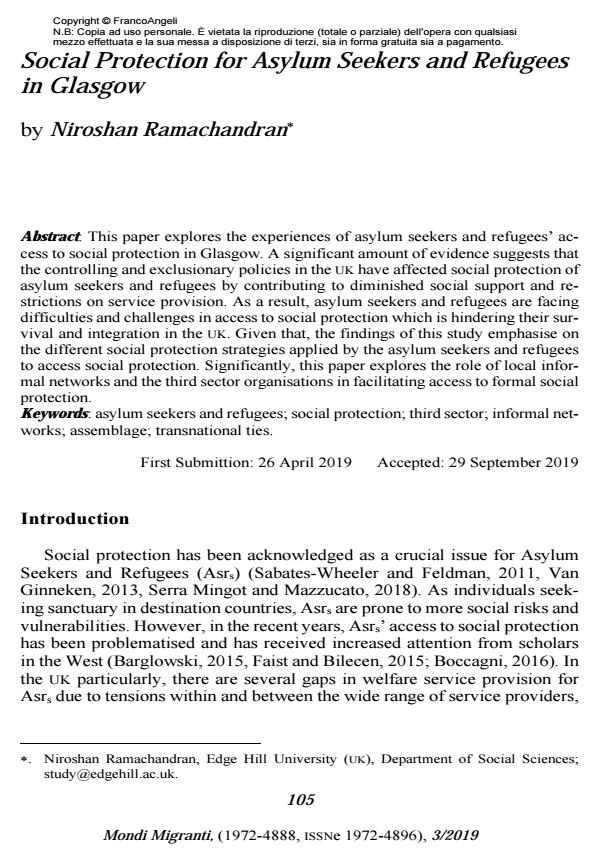Social Protection for Asylum Seekers and Refugees in Glasgow
Journal title MONDI MIGRANTI
Author/s Niroshan Ramachandran
Publishing Year 2019 Issue 2019/3
Language English Pages 19 P. 105-123 File size 209 KB
DOI 10.3280/MM2019-003006
DOI is like a bar code for intellectual property: to have more infomation
click here
Below, you can see the article first page
If you want to buy this article in PDF format, you can do it, following the instructions to buy download credits

FrancoAngeli is member of Publishers International Linking Association, Inc (PILA), a not-for-profit association which run the CrossRef service enabling links to and from online scholarly content.
This paper explores the experiences of asylum seekers and refugees’ access to so-cial protection in Glasgow. A significant amount of evidence suggests that the con-trolling and exclusionary policies in the UK have affected social protection of asy-lum seekers and refugees by contributing to diminished social support and re-strictions on service provision. As a result, asylum seekers and refugees are facing difficulties and challenges in access to social protection which is hindering their survival and integration in the UK. Given that, the findings of this study emphasise on the different social protection strategies applied by the asylum seekers and ref-ugees to access social protection. Significantly, this paper explores the role of local informal networks and the third sector organisations in facilitating access to for-mal social protection.
Keywords: Asylum seekers and refugees; social protection; third sector; informal networks; assemblage; transnational ties.
Niroshan Ramachandran, Social Protection for Asylum Seekers and Refugees in Glasgow in "MONDI MIGRANTI" 3/2019, pp 105-123, DOI: 10.3280/MM2019-003006